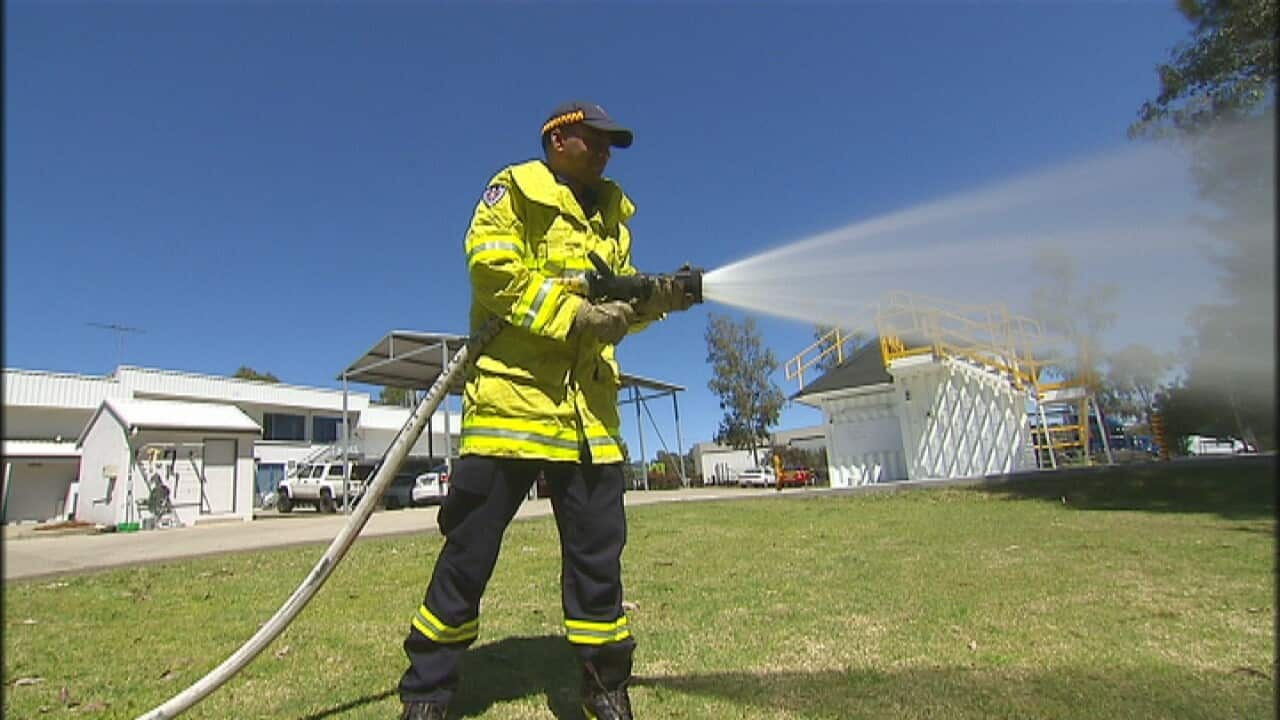Becoming a firefighter is no easy task. But when Gagan Singh completed his training with Fire and Rescue New South Wales, he was told he was probably the first-ever Indian to do it.
"I have friends who are in police services, and I know people in ambulance services," he said. "I thought there would be people from Indian background in fire services as well.
"While doing the training, they started telling me, 'Oh, we've never seen an Indian before in fire services.' I said, 'Wow, that's strange'."
Nationality isn't usually the primary focus when firefighters race out to a job, though it does play a role in a multicultural hotspot like western Sydney.
Mr Singh has lived in the area for 12 years.
"I came to Australia in 2004 as a student and slowly got settled in," he said. "I thought, as a migrant, I need to give something back as well.
"I worked as a detention-services officer at Villawood Detention Center, but I always wanted to join emergency services. Sometimes people are having the worst day in their life, and you can go out there and help them out."
Over time, Mr Singh learned there was a huge difference in the way fires are handled in Australia, compared to India.
"In India, we don't care much about fire," he said. "We don't have such education in schools where we need to think about fire safety or fire dangers.
"We have a big fire brigade in India as well, [but] they're just shoved in the corner by the government."
Helping CALD communities
As a Punjabi speaker, Mr Singh will also participate in a statewide fire-safety program that aims to educate culturally and linguistically diverse (CALD) communities.
FRNSW community safety coordinator David Weir said the fire service was only slightly ahead on its required intake of CALD recruits.
"In Fire and Rescue we have a low representation of the CALD communities across the state," he said. "So we are ongoing with that campaign to ensure that, if there are any issues or problems, we have a diverse group to assist, in regards to language, translation, to engage with the local community."
Mr Weir said most of the difficulty recruiting CALD candidates could be traced back to family traditions.
"It's a difficult task," he said. "Most times we find that the family has set up a company or business and through tradition they all work through that family or that group and they don't leave."
Mr Singh works at Huntingwood fire station, where the staff includes firefighters of Greek, Filipino and Uruguayan descent.
In his 26 years as a firefighter, Danny Mori said even his limited Italian has made a difference.
"You come up and speak to someone in their language, they take it on board, and it makes them feel like you care about them," he said. "Safety is our biggest aspect, especially these days.
"It's changed a lot, and it's more about community engagement, letting people know what the dangers are. We don't turn out to fires as often. They're probably about a third of the things we do."
Mr Singh said he looked forward to his new career in the fire service and hoped more CALD communities would be represented in the future.
"If people from Indian background, or different background, come and join the fire service, that would be awesome," he said.

